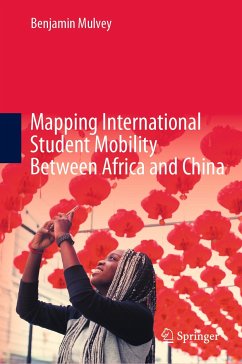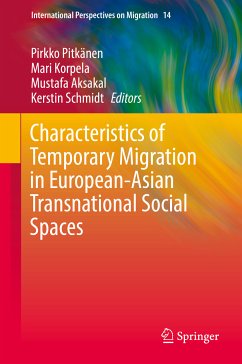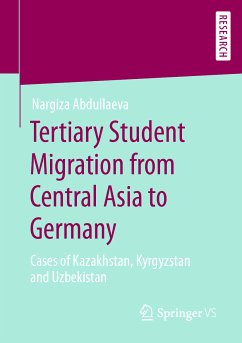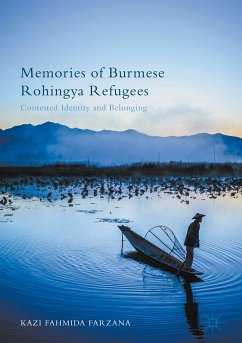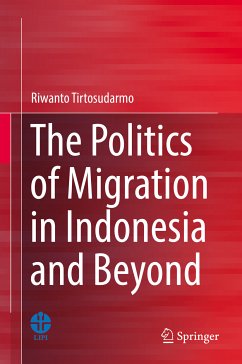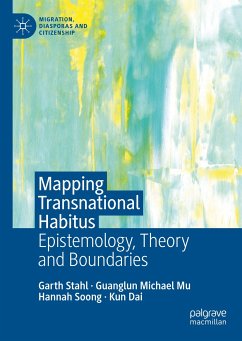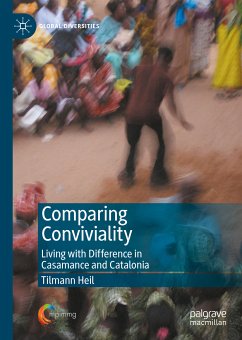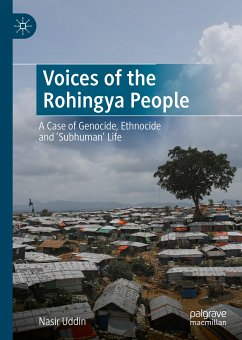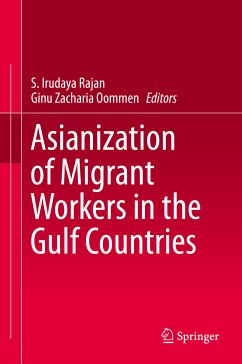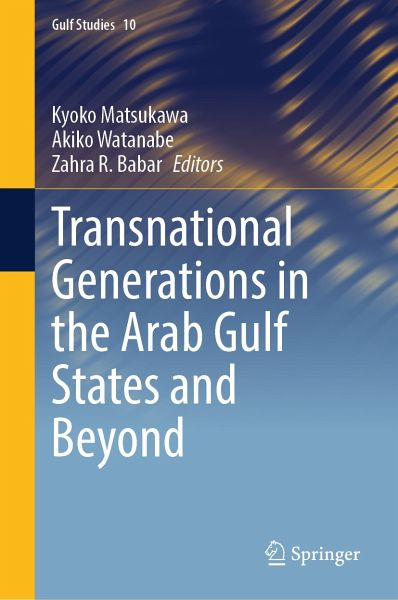
Transnational Generations in the Arab Gulf States and Beyond (eBook, PDF)
Versandkostenfrei!
Sofort per Download lieferbar
104,95 €
inkl. MwSt.
Weitere Ausgaben:

PAYBACK Punkte
52 °P sammeln!
This book examines the recent migration phenomenon in the Arab Gulf states for work and residence. It sheds light on the transnationality of diverse groups of migrants from different generations, and unpacks how migrants' multiple senses of belonging, orientations and adaptive strategies have shaped contemporary migration in the Gulf region. In turn, the analysis presented here shows how the Arab Gulf states' citizenship and educational policies affect second-generation migrants in particular. Through a series of fine-grained ethnographic case studies, the authors demonstrate the ways in which...
This book examines the recent migration phenomenon in the Arab Gulf states for work and residence. It sheds light on the transnationality of diverse groups of migrants from different generations, and unpacks how migrants' multiple senses of belonging, orientations and adaptive strategies have shaped contemporary migration in the Gulf region. In turn, the analysis presented here shows how the Arab Gulf states' citizenship and educational policies affect second-generation migrants in particular. Through a series of fine-grained ethnographic case studies, the authors demonstrate the ways in which these second-generation migrants construct their identities in relation to their putative 'home' country in the Gulf as well as their complex relationship to their parents' countries of origin. This is what underpins the deeply transnational character of their lives, choices and notions of belonging. While migration scholars often situate these groups as 'temporary', this does not in fact capture the reality of temporariness for the migrants themselves, their children or their dependants. The result is a complex and ongoing construction of identity that shapes the way of life for millions of migrants. Relevant to scholars of migration and international studies, particularly focused on the Middle East, Transnational Generations in the Arab Gulf States and Beyond is also of interest to social scientists researching student mobility in higher education, intergenerational families, identity politics and globalisation.
Dieser Download kann aus rechtlichen Gründen nur mit Rechnungsadresse in A, B, BG, CY, CZ, D, DK, EW, E, FIN, F, GR, HR, H, IRL, I, LT, L, LR, M, NL, PL, P, R, S, SLO, SK ausgeliefert werden.



